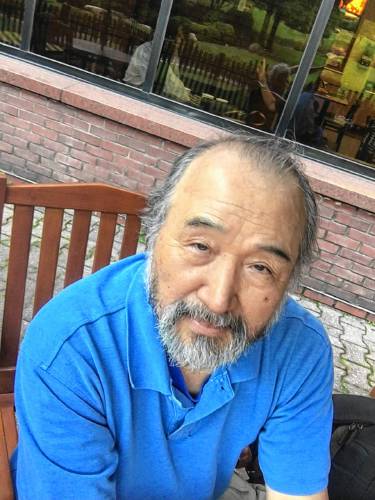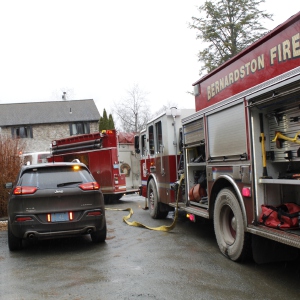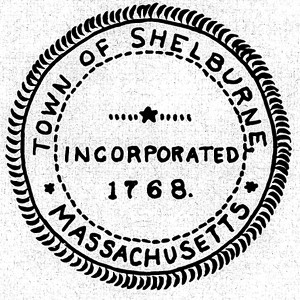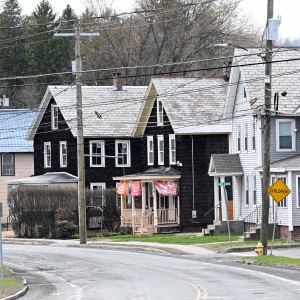As I See It: Let’s celebrate these ‘true Americans’

Jon Huer
| Published: 06-14-2024 3:18 PM |
Whenever you are in the downtown area of Greenfield, it’s hard not to notice the usual downtown vagrants, mostly homeless and jobless. In our era of maximum consumption of comfort and pleasure, these people stand out conspicuously as the underclass of America, not exactly an exemplary display of career respectability, civic responsibility or consumer affluence. Existing precariously in the margins of an indifferent society, their daily life is far from the official narrative of American success. Surely, they have turned their backs on America’s great capitalist game.
Seeing their carefree “lifestyle,” unencumbered by the conventional trappings of civilization, however, I am often struck by the irony of how “free” they truly are. In a society that supplies us everything our hearts desire (except freedom and justice), these people are indeed the truest Americans if individual freedom is used to measure our “American-ness.”
Consider their lifestyle opposites, namely us, the normal, average common working Americans: In debt up to our neck with expenses involved in the ownership and maintenance of automobiles, homes and other entrapments of modern life, mostly swimming upstream to survive in an over-consuming capitalist society in which everybody has everything. To stay as good-credit holders, law-abiding taxpayers and respectable neighbors, we struggle daily to live up to our obligations.
If we indeed measure the success of life in the degree of our freedom, the contrast between the downtown vagrants and the middle-class Americans is quite dramatic: We live daily in anxiety; they live in peace. We have little or no true free time; they have nothing but freedom. We trust nobody; trust with one another is their lifeline. Around the clock we live somebody else’s dream and our own nightmare; they live serenely as each day comes. Here, as unthinkable as it is, we are actually staring at the kind of people that we all want to become — the free and true Americans! Except that we only dream of freedom through money but they achieve their freedom from money!
Historically, the genealogy of these free Americans, in their anti-mainstream lifestyle, traces to the generations of underclass Americans generally called Hobos (slightly sidetracked by their cultural cousins, the Hippies), a byproduct of the Great Depression and the precursor to the homeless and the mentally irregular of today. These hobos roamed the underbelly of America, creating their own unique subculture in the shadow of official America reeling from the Depression.
Hobos represented the last of the great American spirit of freedom that had long ceased in the industrial and material development in America’s thriving corporate capitalism. In it, the sons and daughters of free farmers had joined corporate America to become its new white-collar class. The crash was a sobering economic earthquake that shook the thriving capitalist world. In this shaken but not repentant capitalist America, the hobos were America’s own self-image that it was reluctant to own and had forgotten for several decades through the fawning decadence of the Gilded Age and the Roaring Twenties.
The hobo subculture actually reminded America of the free lifestyle that they themselves had lived as pioneers not too long ago. The freewheeling, fiercely independent “lifestyle” that hobos kept, perhaps by necessity, was a relic of the way American founders had lived in the century and half prior to the crash, most famously by legends like Davy Crockett who was perhaps America’s best-known hobo. In the process, the hobos became the reminder of a bygone era — gone in reality but kept in nostalgia — where most Americans were truly free and independent from society.
As history marched on, World War II, with its great armament industry, brought the Great Depression to an end and following the end of the war American society has never stopped its march to abundance, consumption and pleasure that are unprecedented in world history. In this society, we expect to hold down a job to pay bills and to survive in a fetchingly delicious society of affluence that repeats every day. Our life’s needs and desires are so well supplied that when we encounter an American who doesn’t conform to capitalist consumer routines, we wonder what’s wrong with him: Doesn’t he have TV, social media or junk food day and night, with access to credit cards, automobiles, homeownership and scheduled entertainment like the rest of us? Naturally, we describe anyone who rejects materialism and waste as an odd character.
Article continues after...
Yesterday's Most Read Articles
 Two dogs, three cats killed in Orange fire
Two dogs, three cats killed in Orange fire
 Leyden house fire reignites on Monday
Leyden house fire reignites on Monday
 PHOTOS: Hundreds participate in ‘Hands Off!’ standouts across Franklin County
PHOTOS: Hundreds participate in ‘Hands Off!’ standouts across Franklin County
 Plans to move Northfield EMS to Bernardston property fall through
Plans to move Northfield EMS to Bernardston property fall through
 Shelburne Selectboard determines police detective will retain job
Shelburne Selectboard determines police detective will retain job
 Bulletin Board: Greenfield's Savannah Thomas wins Knights of Columbus Hoop Shoot state title
Bulletin Board: Greenfield's Savannah Thomas wins Knights of Columbus Hoop Shoot state title
In essence, these folks are refreshing detoxers for those of us who work and live for regular incomes from grinding workplaces to prop up our lifestyle. Unlike us, these downtown denizens are oblivious to pressures of property taxes, monthly bills or over-maxed credit cards. They cheat or harm nobody and do not steal bread from a child’s mouth. Totally free from government or corporate propaganda traps, they are susceptible to neither capitalism’s temptations nor MAGA’s seductions. Just like the hippies and hobos and — perhaps more importantly — like the free men and women who once inhabited America before capitalism came, their motto should be Live and Let Live, not War of All against All.
We, the so-called normal Americans, in the meantime, hardly experience a day of true peace or genuine security. Breathlessly, we live the designs of our economic masters and die with the daily pleasures with which they addict us. But these “refusniks” of American capitalism, the true Americans, remain free and free-spirited, unchained from the snare of materialism and narcissism.
Unlike the rest of us.
Jon Huer, retired professor, lives in Greenfield. Of the dozen books of social criticism he authored, TIME magazine noted “The Dead End,” his magnum opus, as “an important and brilliant book about America’s national death wish.”






 My Turn: ADUs and the politics of fear
My Turn: ADUs and the politics of fear My Turn: The war on us has begun
My Turn: The war on us has begun Jon Oltman: And the takeaway is?
Jon Oltman: And the takeaway is? Edward Schwerin: Trump regime not the answer
Edward Schwerin: Trump regime not the answer
